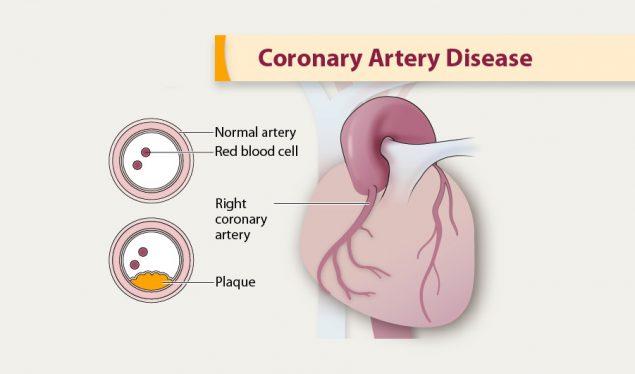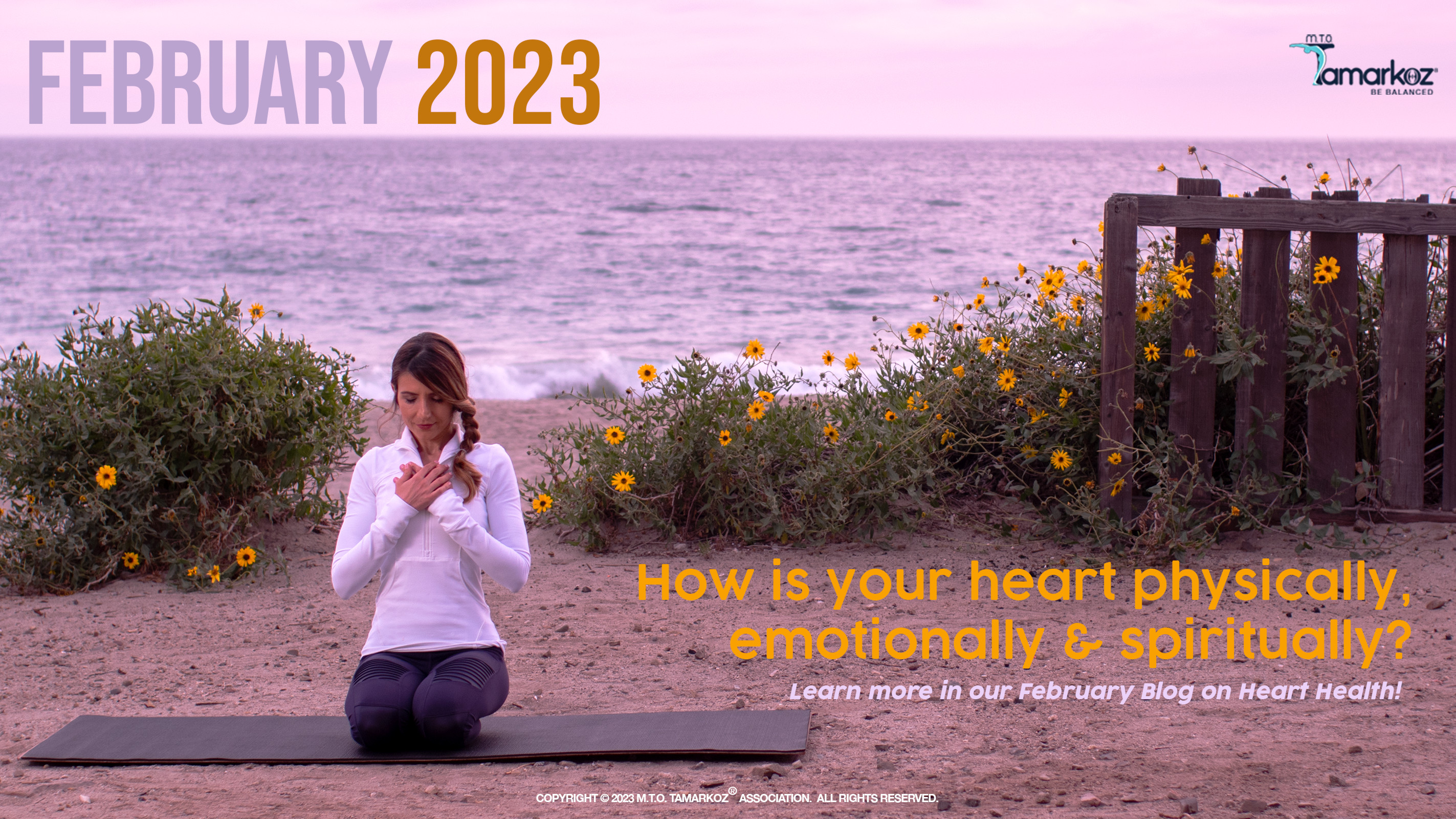“Watch over thy heart”
In the month of February, we’re focusing on protecting the heart. Our heart does so much for us physically and spiritually. Every beat of your heart is for you.
It beats tirelessly, if cared for. Remember, the heart is a muscle. And if it’s overworked by pumping harder due to stress, high blood pressure, high cholesterol or being overweight, then like any muscle it will eventually get tired and want to stop. The overworked heart may lead to heart attacks. This is happening far too often. Coronary artery disease is the leading cause of heart attacks. In short, this is when plaque builds up in blood vessels causing it to become narrower. So, the heart must pump faster and work harder to push blood through these narrowed vessels.

This is the leading cause of death in men and women across the world. Obesity, alcohol, diabetes, stress, and high blood pressure hugely contribute to heart disease. But factors that cause it are preventable. There is more to taking care of your heart than just being physically fit.
Take care of your heart physically, emotionally, and spiritually. We’ve provided some tips in this article, but always talk with your physician first for a personalized plan depending on your health status:
Physically:
Be physically active every day. Aim for 8,000 to 10,000 steps a day. The U.S. Surgeon General recommends 2.5 hours of moderate-intense exercise a week. This could be 30-minute brisk walks or bicycling five days a week.
Keep a healthy weight. Extra weight is stressful for your blood vessels and heart. Assess your body weight for your height.
Eat healthy foods that are low in saturated fat and sodium. Check the nutrition label on food packages. Saturated fat shouldn’t be more than 10-15% of daily value on the nutritional label. As a rule of thumb, salt or sodium shouldn’t be more than the total number of calories for the food item. Check out the Healthy Eating Plate as a guide for creating healthy and balanced meals.
Emotionally:
Extreme emotions may negatively affect the heart. Even without coronary artery obstruction, severe emotional or physical stress weakens the heart and may mimic a heart attack. This is called Takotsubo cardiomyopathy, also known as broken heart syndrome. Although it’s a temporary condition, people continue to feel unwell even after the heart has healed.
Stress plays a big role in your heart’s health. Learning to manage your reaction to stress is imperative. What causes you distress? What helps to relax you? Give your heart and mind time to relax. Taking steps in managing emotional stress is important to protect your heart’s health.
Check in with a mental health counselor, therapist or connect with others in support groups to work through mental and emotional health issues.
Spiritually:
Spirituality cultivates your connection to something greater than yourself which can give a sense of peace and purpose. The great Sufi Master Professor Sadegh Angha taught that the Source of Life—the connection to all Existence—is within the human heart. To achieve this connection is to achieve self-knowledge. As Tamarkoz is defined as the art of self-knowledge through concentration and meditation, this is the reason we meditate on the heart. A recent study demonstrates Tamarkoz mediation significantly increases daily spiritual experiences for a diverse population.
Spirituality is nourished intrinsically. Relying on something outside of your inner self, such as use of psychedelic drugs to alter states of consciousness, is not considered spiritual. The effects do not last. It ends once the drug’s out of the system.
Go within to foster spirituality such as through meditation, prayer, gratitude, and evoking gentleness towards yourself and others. Look at yourself with love and see how precious, strong, and valuable you are.
Tamarkoz meditation:
Tamarkoz meditation has significant effects on reducing stress, heart rate, and symptoms of depression and anxiety, while improving positive emotions (i.e. contentment, love, awe, amusement to name a few).
Through Tamarkoz, you learn about yourself. You learn to quiet your mind, calm your nervous system, relax your body, develop focus to concentrate, and truly meditate to connect for balance and stability. You can place the skills, techniques, and exercises you learn from Tamarkoz in your “tool kit” along with other modalities you know help you.
Activity: Sit tall and comfortably place your left hand over your heart. Close your eyes. Feel the warmth of your hand against your chest. Take 3 deep breaths. Inhale slowly through your nose. Exhale slowly and fully through the mouth. With each inhalation, feel your chest rise. If you can feel or hear your heartbeat, just let it expand. It’s the rhythmic beat of your body.
Give a moment of gratitude to your heart: “Thank you for beating for me. Thank you for the love you have for me. Thank you for the life you give to me. Thank you for your guidance & wisdom. Thank you for your warmth.” Promise your heart to visit more often.
References:
- Molana Shah Maghsoud Sadegh Angha, Dawn. M.T.O. Shahmaghsoudi Publications, 1999.
- Angha, N. Theory “I”: The Unlimited Vision...of Leadership. M.T.O. Shahmaghsoudi Printing & Publication Center, 2002.
- The Extraordinary Human by Dr Lynn Wilcox, PhD., M.T.O. Publications, 2021.
- Bahadorani, N., Lee, J.W. and Martin, L.R. (2021) Implications of tamarkoz on stress, emotion, spirituality and heart rate, Nature News. Nature Publishing Group. Available at: https://www.nature.com/articles/s41598-021-93470-8 (Accessed: January 29, 2023).
- Prevent heart disease (2020) Centers for Disease Control and Prevention. Centers for Disease Control and Prevention. Available at: https://www.cdc.gov/heartdisease/prevention.htm (Accessed: January 29, 2023).
- Coronary artery disease (2021) Centers for Disease Control and Prevention. Centers for Disease Control and Prevention. Available at: https://www.cdc.gov/heartdisease/coronary_ad.htm (Accessed: January 29, 2023).
- Takotsubo cardiomyopathy (broken-heart syndrome) (2022) Harvard Health. Available at: https://www.health.harvard.edu/heart-health/takotsubo-cardiomyopathy-broken-heart-syndrome (Accessed: January 30, 2023).
- Broken heart syndrome (2022) Mayo Clinic. Mayo Foundation for Medical Education and Research. Available at: https://www.mayoclinic.org/diseases-conditions/broken-heart-syndrome/symptoms-causes/syc-20354617 (Accessed: January 29, 2023).
